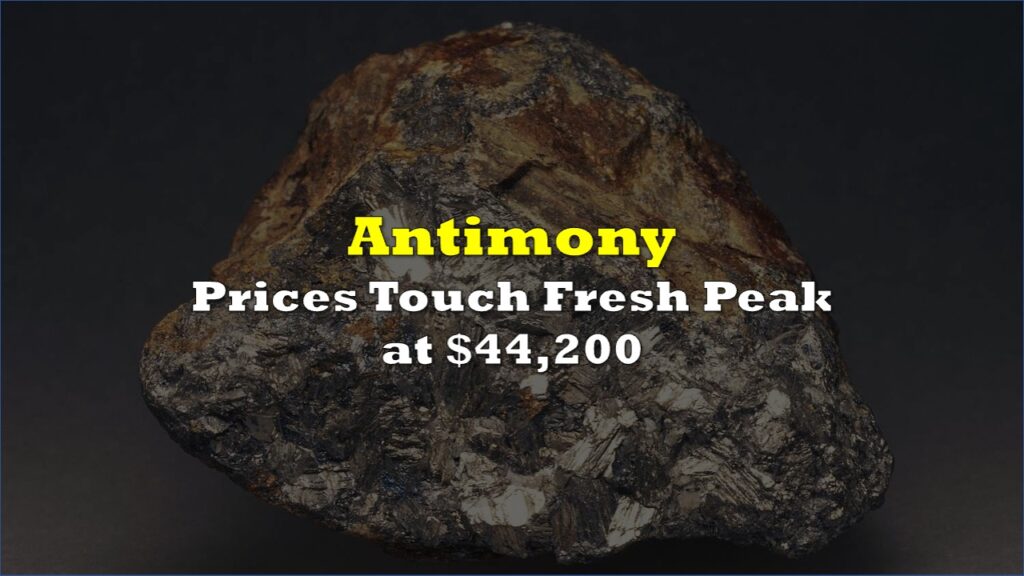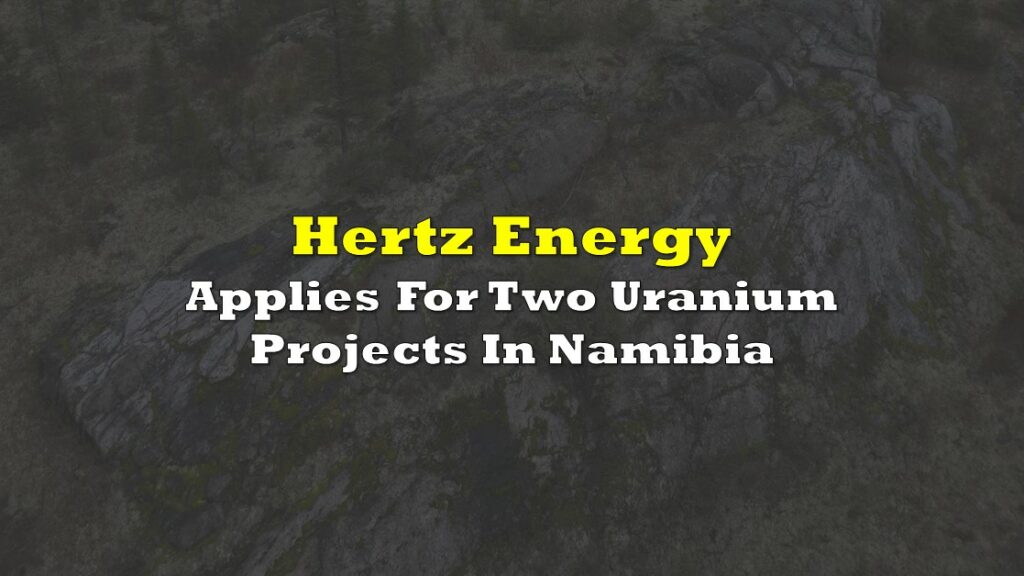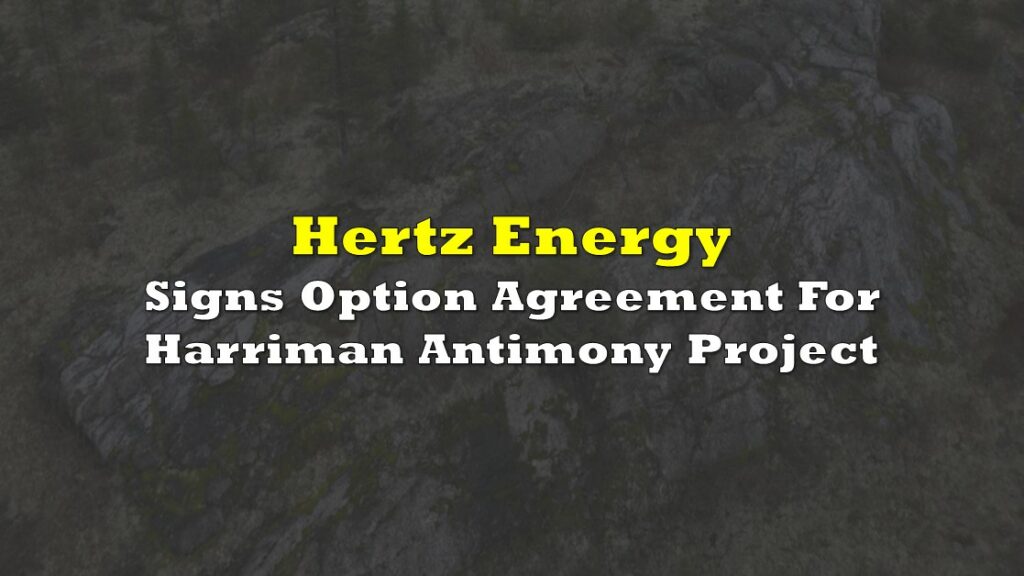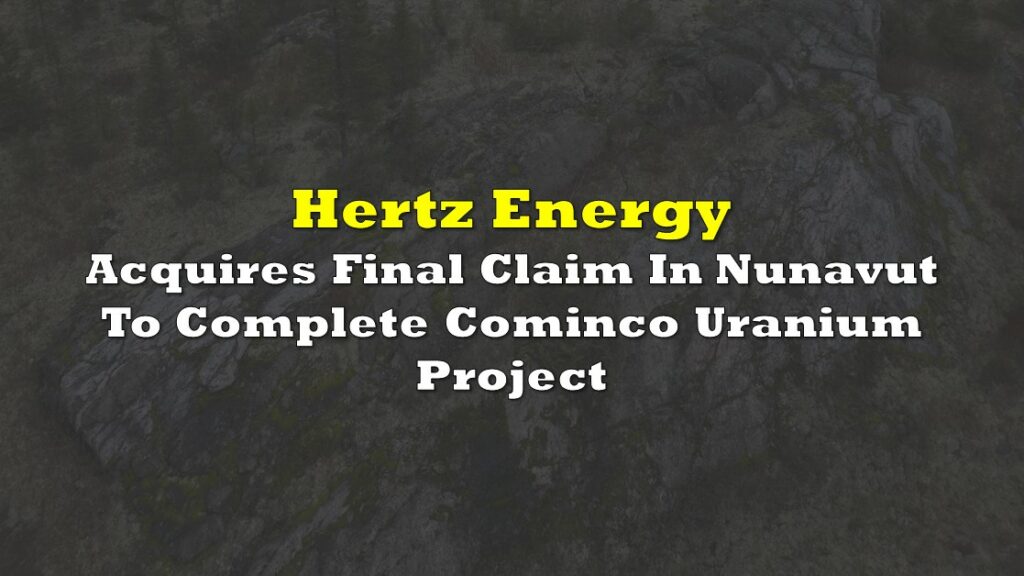FULL DISCLOSURE: This is sponsored content for Hertz Energy.
The global market for critical minerals is facing an upheaval as China continues to leverage its dominance in strategic metals. This week, China introduced export restrictions on antimony, a mineral vital to various industries, including defense, electronics, and renewable energy. The restrictions have further tightened the global supply chain, adding to the growing concerns about the availability of this critical resource.
Antimony is a relatively obscure but essential element used in a wide range of products. Its primary application is as a flame retardant in electronics, textiles, and construction materials. However, it also plays a significant role in more specialized industries, such as defense. Antimony is a key component in armor-piercing ammunition, infrared sensors, and night vision goggles, making it indispensable for modern militaries.
Another significant use of antimony is in lead-acid batteries, which are widely used in vehicles, including electric ones. Moreover, antimony has applications in solar panels and semiconductors, where it helps improve the efficiency of these technologies. The growing demand for renewable energy and electric vehicles has further intensified the need for stable supplies of this critical mineral.
China’s control over global antimony supply
China currently dominates global antimony production, accounting for nearly 48% of the world’s output. The nation has become the largest supplier not just of the raw mineral but also of the refined antimony products essential for various industrial applications.
This dominance has led to an almost monopolistic control over the global supply chain, with other major producers like Myanmar and Russia contributing only a fraction of what China offers.
Recent conflicts and sanctions affecting Myanmar and Russia have also exacerbated global supply issues, adding to the complexity of antimony sourcing. As China tightens its export controls, countries around the world are scrambling to secure alternative sources of this critical metal.
When China introduced its export restrictions this month, the price of antimony surged dramatically. The mineral’s price climbed by more than 5% immediately after the announcement, reaching $25,000 per tonne—a stark contrast to the $12,000 per tonne recorded at the end of 2023.
The U.S. currently relies on imports for 82% of its antimony supply, with China supplying 63% of that demand. Despite having a stockpile of just 1,100 tonnes, the U.S. consumed 23,000 tonnes in 2023 alone, underscoring the scale of the challenge ahead. U.S. efforts to diversify its sources, including potential mining projects in Idaho and Alaska, are still years away from bearing fruit.
Exploring antimony
Amid this global scramble for antimony, Hertz Energy (CSE: HZ) has emerged as a player in North America’s push for new sources of the mineral. This month, Hertz announced the acquisition of the Lake George Antimony Property in New Brunswick, Canada, a region historically known for its antimony production.
The Lake George Antimony Mine, which operated from 1876 to 1996, was once a major producer, and Hertz Energy is now focused on reviving the region.
“With the Chinese export restrictions on antimony soon taking effect and several active conflicts around the world, the need for antimony has skyrocketed,” said Kal Malhi, CEO of Hertz Energy. The company’s exploration efforts aim to tap into the rich mineral deposits surrounding the historic mine, with plans to expand into less explored areas.
Hertz Energy has also commenced exploration at its Harriman Antimony Property in the Gaspé Region of Québec. The property, covering 2,500 hectares, contains promising antimony and gold mineralizations.
By focusing on underdeveloped regions and historical mining sites, Hertz hopes to become a critical supplier of antimony in the North American market.
Malhi emphasized the strategic importance of these projects, especially as demand for antimony continues to rise.
“Our goal is to unlock the full potential of these properties and contribute to reducing North America’s dependency on foreign antimony supplies,” he said.
The antimony market is at a pivotal moment, with supply chains disrupted and prices soaring. While China remains the dominant player, countries like the U.S. are actively seeking to diversify their supply sources. Companies like Hertz Energy are positioning themselves to fill the gap, offering hope that new mining projects will alleviate the current supply shortages.
FULL DISCLOSURE: Hertz Energy is a client of Canacom Group, the parent company of The Deep Dive. Canacom Group is currently long the equity of Hertz Energy. The author has been compensated to cover Hertz Energy on The Deep Dive, with The Deep Dive having full editorial control. Not a recommendation to buy or sell. We may buy or sell securities in the company at any time. Always do additional research and consult a professional before purchasing a security.









